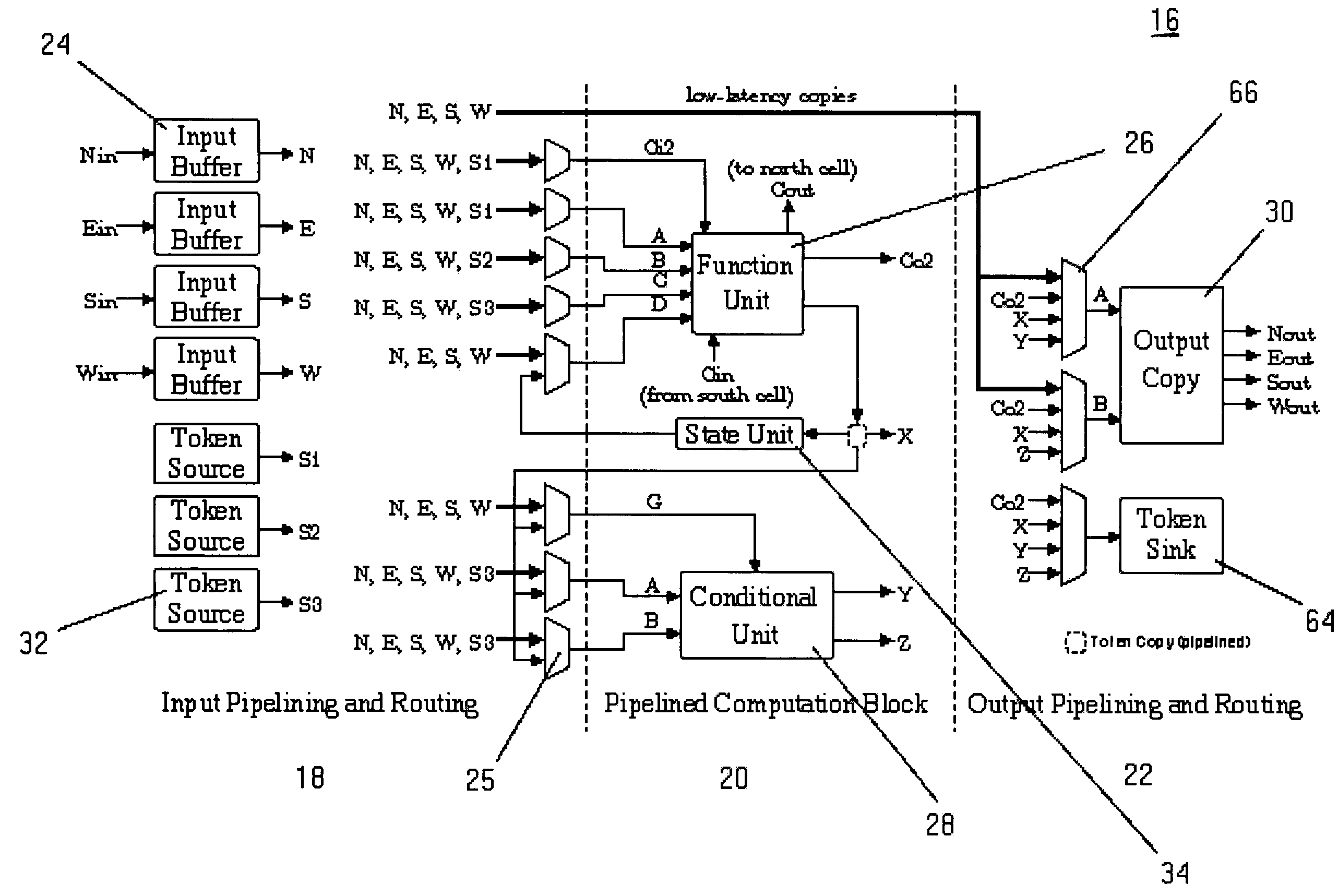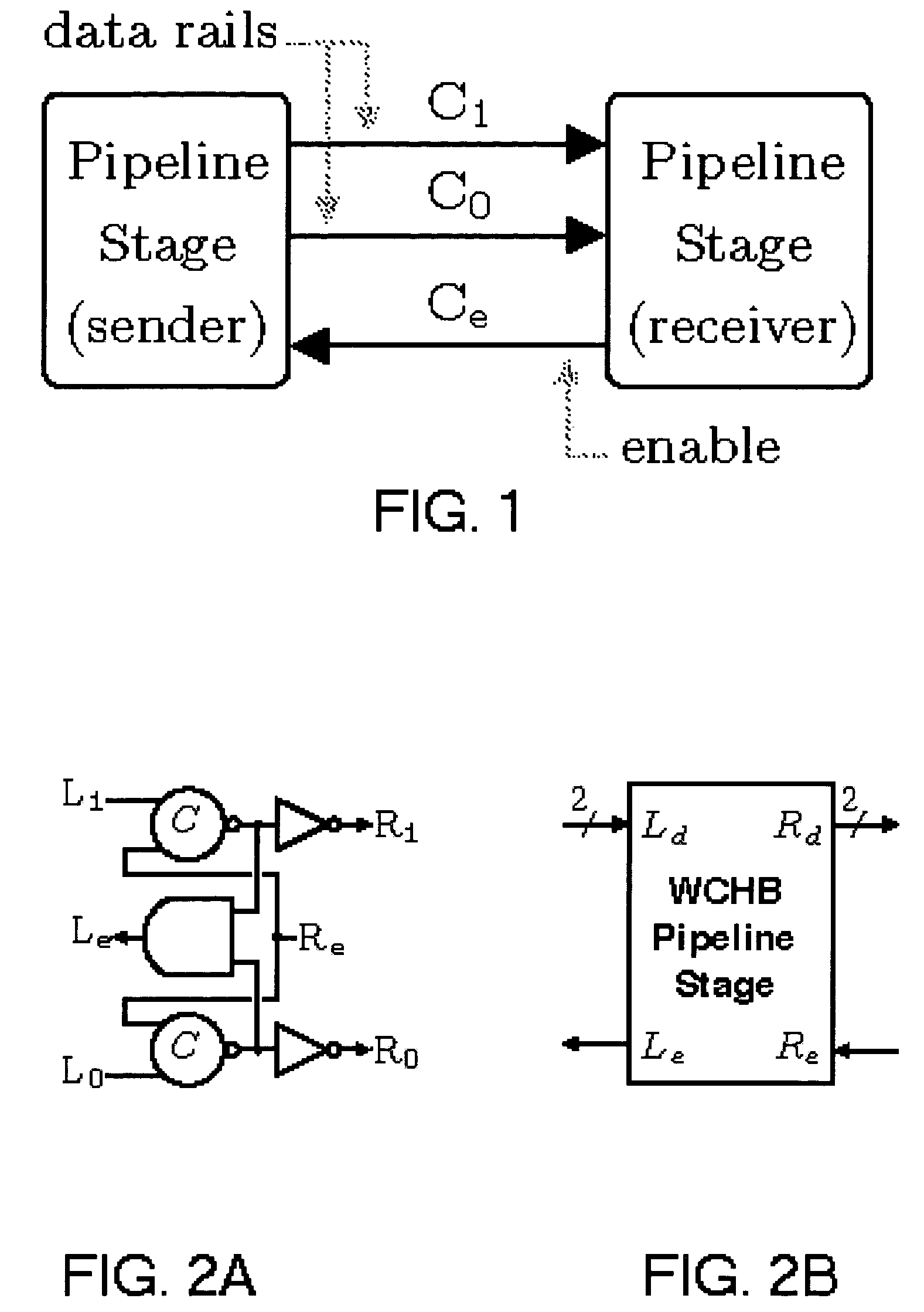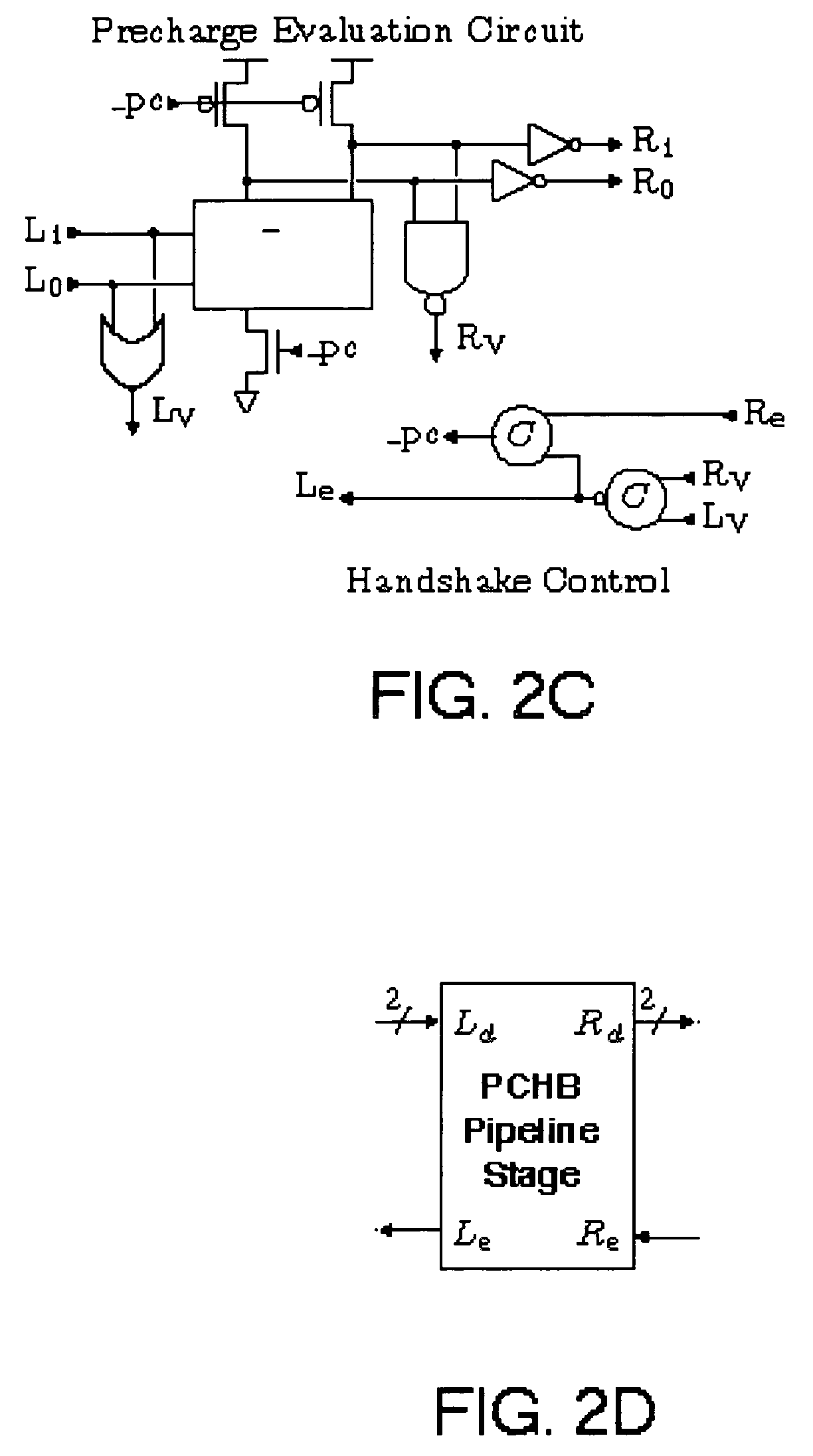Programmable asynchronous pipeline arrays
a pipeline array and pipeline technology, applied in the field of pipelined asynchronous logic circuits, can solve the problems of clocked systems suffering from a number of inherent drawbacks, requiring global retiming of the entire system, and adding high-speed retiming hardware support to a clocked fpga, and achieves high token throughput.
- Summary
- Abstract
- Description
- Claims
- Application Information
AI Technical Summary
Benefits of technology
Problems solved by technology
Method used
Image
Examples
Embodiment Construction
[0038]Before a discussion of the preferred embodiments of the present invention is presented, the basic asynchronous circuits that are employed as the building blocks in the preferred embossments will be discussed. The class of asynchronous circuits employed in the preferred embodiments is known as quasi-delay-insensitive (QDI). QDI circuits are designed to operate correctly under the assumption that gates and wires have arbitrary finite delay, except for a small number of special wires known as isochronic forks that can safely be ignored for the circuits in the preferred embodiments. Although transistors can be sized to adjust circuit delays, this only affects the performance of a circuit and not its correctness. The asynchronous systems that form the preferred embodiments can be viewed as a collection of concurrent hardware processes that communicate with each other through message-passing channels. The messages that are passed through the channels consist of atomic data items cal...
PUM
 Login to View More
Login to View More Abstract
Description
Claims
Application Information
 Login to View More
Login to View More - R&D
- Intellectual Property
- Life Sciences
- Materials
- Tech Scout
- Unparalleled Data Quality
- Higher Quality Content
- 60% Fewer Hallucinations
Browse by: Latest US Patents, China's latest patents, Technical Efficacy Thesaurus, Application Domain, Technology Topic, Popular Technical Reports.
© 2025 PatSnap. All rights reserved.Legal|Privacy policy|Modern Slavery Act Transparency Statement|Sitemap|About US| Contact US: help@patsnap.com



